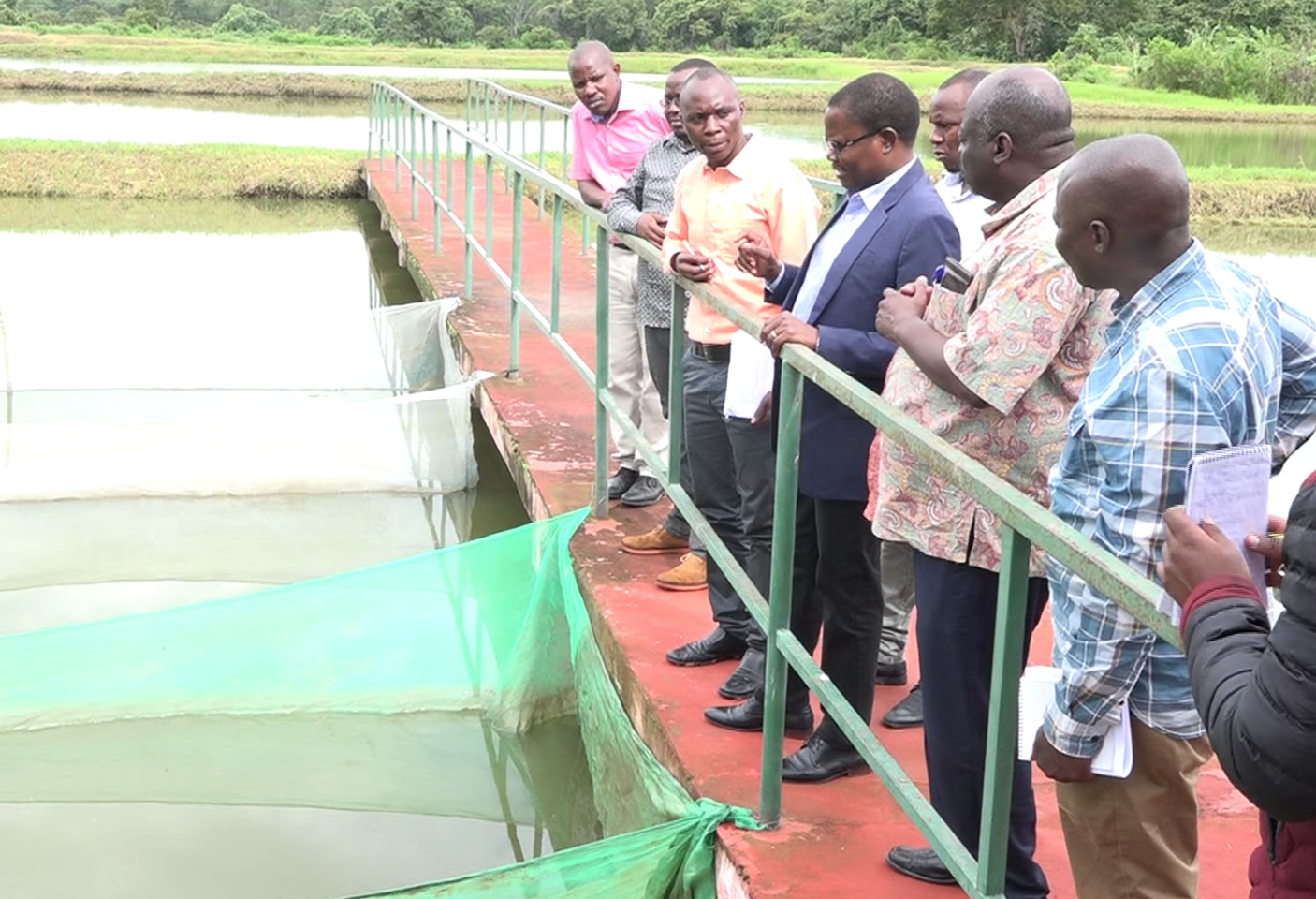Countrywide Rollout of SAGCOT’s Transformative Agricultural Model in the Offing Following a Presidential Directive
Dar es Salaam, Tanzania:
Tanzania is poised to scale up its agriculture and food systems by leveraging the proven success of the Southern Agricultural Growth Corridor of Tanzania (SAGCOT) model.
The SAGCOT corridor contributes to over 60% of the country’s food crop production, despite covering only a third of the country. Now, following a directive from President Samia Suluhu Hassan, this approach is being prepared for a nationwide rollout.
The guest of honour at the meeting, the Regional Commissioner of Dar es Salaam, Hon. Albert Chalamila, extended his congratulations to SAGCOT for their exemplary work in the Southern highlands. He further noted that the countrywide rollout aligns seamlessly with the government’s agenda to promote agricultural advancements and uplift communities.
Hon. Chalamila, was represented by the District Commissioner of Kinondoni, Hon. Saad Mtambule. He highlighted that SAGCOT has been instrumental in shifting people’s perceptions, encouraging them to view agriculture not just as an occupation but as a business. “Agriculture is a certain path to a better life and employment. Our youth should recognize the immense potential in the agribusiness sector; it’s where the future millionaires will emerge,” he said.
SAGCOT is an exemplary public-private initiative, globally recognized for its innovative approach to agricultural development. The SAGCOT model exemplifies a transformative approach to agricultural development, blending public-private collaborations with innovative tools and sustainable practices, setting a benchmark for nations aiming to rejuvenate their agricultural sectors.
Mr. Geoffrey Kirenga, the CEO of SAGCOT, noted that the rollout strategy has been initiated following President Samia’s directive on March 17, 2023, to replicate the SAGCOT model in other parts of the country. The goal is to transform Tanzania into a formidable African breadbasket, ensuring national food security, promoting trade, fostering agro-industrialization, boosting exports, and generating employment for millions of youths.
“Following the President’s directive, the Minister of Agriculture, Honorable Hussein Bashe, announced that SAGCOT will scale up. He stated that its operations will not be limited to the southern corridor, but will also extend to other agricultural regions. Moreover, it will take on the new name, ‘Tanzania Sustainable Agriculture Growth Corridors’,” remarked Mr. Kirenga.
“Building on its past successes, this rollout aims to drive broad development by fostering public-private sector collaboration, enhancing production, and nurturing businesses for national economic growth,” said Mr. Kirenga. He encouraged stakeholders to participate by providing insights and perspectives on the transition and rollout strategy.
“The SAGCOT’s approach brings together the government, the private sector, and development partners, highlighting the crucial role of collaboration for sustainable progress, focusing on smallholder farmers and national development. SAGCOT’s role is to act as a bridge, fostering knowledge-sharing and collective solutions, rather than imposing them. This has led to heightened production and the expansion of local and international markets for SAGCOT area agriculture products.
For example, the average productivity of maize in Tanzania is 1.5 tons per hectare. He said SAGCOT has been working diligently to ensure it rises to 6.0 tons per hectare.
Mr. Timothy Mmbaga – Chairperson of the SAGCOT trustees noted that since Tanzania gained independence, the government has been responsible for almost 99% of irrigation investments. “We have 29 million hectares, but in the 60 years since independence, we haven’t even reached one million hectares in terms of irrigation. That means we need more effort from the private sector in this area. We have announced to the world that we want to feed Africa and the world. For that, we need to focus on irrigation because rain-fed agriculture is not sustainable. The cost of irrigation is very high. We need a lot more investment in this area. That’s why we need institutions like SAGCOT, which promotes investments through private and public partnerships.” he said.
If the private sector and government move together, we can achieve great things,
Mr. Mmbaga noted. “The government’s will is evident and has been keenly attentive to the needs of the private sector in agriculture; we’ve observed a significant increase in investments. Our collaboration with the private sector, reinforced by a government demonstrating intensified involvement, has led to soaring investment levels. Recent discussions in South Africa highlighted Tanzania’s rise as a benchmark for state-backed agricultural initiatives,” he noted.
“When I look at SAGCOT, and we in the prime minister’s office look at it, it reflects the need for a robust private sector,” the Coordinator of Agricultural Sector Development Programme (ASDP) II in the Prime Minister’s Office, Dr Salim Nandonde,
hailing increased private sector investments.
He elaborated, “While reviewing recent documents, I was struck by the escalating contributions from the private sector in agriculture. An astounding figure caught my eye—over 1.8 trillion shillings invested in the 2022-2023 fiscal year, a number that surpasses the government’s budget. To put it into perspective, it’s almost like the private sector accounted for 60% of the year’s total capital investment.”
He noted that- “SAGGOT’s success has been evident for quite some time, and I think these achievements led to the desire to spread elsewhere in the country sooner. I remember from my records the earliest desires were shown during the launch of Agricultural Sector Development Programme Phase II (ASDP II) in June 2018. The 5th Phase President the late Dr. John Joseph Pombe Magufuli noted that SAGGOT should now go nationwide. So, I’m grateful for this follow-up, meaning that our beloved President Samia Suluhu Hassan seems to have taken it up because in 2018 that statement was made simply, and then recently during the AGRF, the call was made for SAGGOT to spread nationwide. So I think these are two powerful statements at different times. Now we are in the process of reviewing the program for the first half, and I see the nationwide movement starting through the general meeting here. So my request is that this exercise is done promptly with great expertise.”
Ali Ussi Basha from the Ministry of Agricuture Zanzibar endorsed President Samia’s visionary expansion plan. The representative recollected his visit to USA River- Kilimanjaro, emphasizing the wastage of milk and the modern cattle-rearing techniques he witnessed. “While entities milk companies in Tanzania feel they’ve addressed certain challenges, a lot remains unresolved. Numerous products are still wasted, indicating the vast scope for work,” he said.
He said Zanzibar’s branding, primarily as a tourist destination, witnesses a consistent inflow of tourists, with many bringing local goods from the mainland. The representative pointed out the vast market potential of the archipelago, which, despite being known to have 2 million inhabitants, has a much more extensive transient population due to its tourism.
Reflecting on the past few years, he said, “We’ve undertaken significant measures to elevate our brand, particularly in the fruits and vegetables sector. Although we’ve zeroed in on the tourism market, the demand often outstrips the supply. Zanzibar’s dependency on the mainland for tomatoes for a significant part of the year signals an opportunity waiting to be tapped by mainland producers.”
The gathering was attended by representatives spanning key sectors of Tanzania’s private domain, including members from CEO RT (CEO Round Table), ACT (Agricultural Council of Tanzania), CTI (Confederation of Tanzania Industries), TAHA (Tanzania Horticultural Association) and the farmers’ organisation Lusitu Agribusines Group. This diverse assembly showcased the broad spectrum of Tanzania’s private sector. Accompanying this formidable private representation, Government Representatives were also in attendance, providing valuable perspectives from various agricultural-focused ministries, President’s Office Regional Administration and Local Government Authorities ( PO- RALPG), the prime minister’s office, and the distinct semi-autonomous Zanzibar. Agricultural Non-State Actors Forum (ANSAF), represented the civil society.
The event was also notably graced by several distinguished former leaders who, had interacted with SAGCOT in the past and have transitioned to farming. These individuals, with their wealth of experience, bring a unique blend of policy knowledge and on-ground agricultural expertise. Among them were Hon. Amina Masenza, the former Regional Commissioner of Iringa; Mrs. Wamoja Ayoub, who served as the Regional Administrative Secretary in Iringa and is now based in Dodoma; Hon. Asia Abdallah, the former District Commissioner for Kilolo in Dodoma; and Grace Macha, who once held a pivotal role as an Agriculture Officer. Their collective attendance highlighted the enduring commitment these former leaders have to the agricultural progress of Tanzania.
The first Stakeholder Consultations for the SAGCOT Roll-up Strategy took place on 4 August 2023 in Mbeya. The gathering saw the presence of key figures, including the Minister, Hon. Abdallah Hamis Ulega from the Ministry of Livestock and Fisheries, officials from the Ministry of Agriculture, President’s Office Regional Administration and Local Government Authorities, southern highlands Regional Commissioners, and Regional Administrative Secretariats. The session was chaired by the former Prime Minister of the United Republic of Tanzania, Hon. Peter Mizengo Kayanda Pinda.


